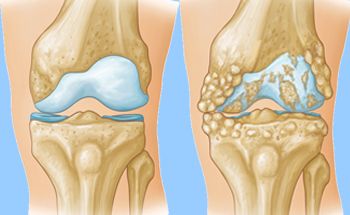A Molecule that Could Spell Relief to Arthritis
Human adult articular cartilage (AC) has little capacity for repair, and joint surface injuries often result in osteoarthritis (OA), characterised by loss of matrix, hypertrophy and chondrocyte apoptosis.
Now, a team at the University of Southern California led by scientist Denis Evseenko, M.D., Ph.D., hopes to delay or reduce the need for surgeries, necessary in extreme cases of osteoarthritis, through an injection.
In their work, the team describes a new molecule aptly named “Regulator of Cartilage Growth and Differentiation,” or RCGD 423 for short, that they believe promotes cartilage growth while also stopping the inflammation that leads to cartilage degeneration.
Denis Evseenko, professor of orthopaedic surgery at the University of Southern California in Los Angeles, says: “The goal is to make an injectable therapy for an early to moderate level of arthritis.”
The breakthrough offers hope to the millions of people with osteoarthritis, the leading cause of joint pain and stiffness.

The molecule works by communicating with a molecule in the body, called the glycoprotein 130 (Gp130) receptor. The Gp130 is capable of receiving two types of signals from the body, namely those that promote cartilage development in the embryo
, and those that trigger chronic inflammation in the adult. RCGD 423 boosts the Gp130’s ability to receive the cartilage development signals (which leads to cartilage regeneration, even in adults), and blocks the inflammatory signals.When RCGD 423 was applied to joint cartilage cells in the laboratory, the cells proliferated more and died less, and when injected into the knees of rats with damaged cartilage, the animals could more effectively heal their injuries.
Given these auspicious early results, the team is already laying the groundwork for a clinical trial to test RCGD 423 or a similar molecule as a treatment for osteoarthritis or juvenile arthritis.
“It’s not going to cure arthritis, but it will delay the progression of arthritis to the damaging stages when patients need joint replacements, which account for a million surgeries a year in the U.S.” says Evseenko.






























